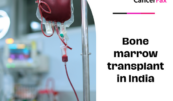Pabosini plus cetuximab for head and neck cancer treatment with 70% focal reduction
According to the results announced at the 2018 ASCO annual meeting, the CDK4/6 inhibitors pabociclib (Ibrance) and cetuximab (Erbitux) combined treatment of platinum-resistant and HPV-independent recurrent/metastatic head and neck The overall response rate for patients with squamous cell carcinoma (HNSCC) is 39%. In a non-randomized, 3-arm, phase II trial (NCT02101034), the results of a group of studies have a median progression-free survival (PFS) of 5.4 months, a median overall survival (OS) of 9.5 months, and a 1-year OS The rate is 35%.
In this study, 30 patients with HNSCC unrelated to HPV progressed after platinum-based therapy for relapsed/metastatic disease and participated in the trial. Patients who had previously received cetuximab for relapse and HPV-related oropharyngeal cancer were not eligible. Patients received palbociclib from day 1 to day 21, 125 mg daily; cetuximab, with a starting dose of 400 mg/m 2 and then 250 mg/m 2 per week for a period of 28 days until the disease progressed or withdrew the study. The researchers performed imaging examinations before treatment and after every 2 cycles.
The median age of patients was 67 years, and the tumor sites were oral cavity (47%), larynx (27%), and oropharynx (13%). 20% of patients have local regional metastases, 27% have distant metastases, and 53% have both. Fifteen (50%) patients received ≥ 2 treatments.
Of the 28 evaluable patients, 11 (39%) had tumor responses, including 3 (11%) complete responses and 8 (29%) partial responses. Fourteen (50%) patients had stable disease, 3 (11%) patients had progression, and 70% had reduced tumor lesions.
Researcher Dr. Adkins said that Palbociclib and cetuximab have strong antitumor activity in platinum-resistant HPV-independent head and neck cancer, and biologically targeted therapy for HPV-independent head and neck cancer is an effective treatment strategy. . We look forward to the better results of the follow-up research.
- Comments Closed
- June 23rd, 2020



2018 ASCO annual meeting, ASCO meeting, cetuximab, erbitux, focal reduction, HNSCC, Pabosini
CancerFax is the most trusted online platform dedicated to connecting individuals facing advanced-stage cancer with groundbreaking cell therapies.
Send your medical reports and get a free analysis.
🌟 Join us in the fight against cancer! 🌟
Привет,
CancerFax — это самая надежная онлайн-платформа, призванная предоставить людям, столкнувшимся с раком на поздних стадиях, доступ к революционным клеточным методам лечения.
Отправьте свои медицинские заключения и получите бесплатный анализ.
🌟 Присоединяйтесь к нам в борьбе с раком! 🌟